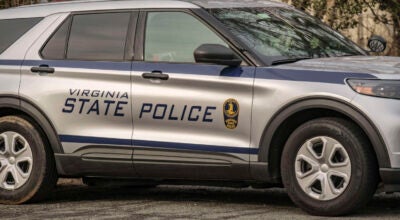Who decides? State bill would strip Charlotte County’s solar control
Published 8:00 am Tuesday, January 30, 2024
|
Getting your Trinity Audio player ready...
|
Solar projects have been controversial in this area for a while. Now a bill filed in this General Assembly session would take away Charlotte County’s solar control. HB636, filed by District 6 Del. Richard Sullivan out of Arlington, would take approval out of the hands of local governments and give it to the State Corporation Commission.
The bill itself says it “establishes a procedure under which an electric utility or independent power provider (applicant) is able to obtain approval for a certificate from the State Corporation Commission (SCC) for the siting of an energy facility rather than from the governing body of a locality.”
To be clear, that would include a wide range of energy facilities, not just solar. The bill states it would apply to any solar facility with a capacity of 50 megawatts or more, any wind facility with a capacity of 100 megawatts or more. It also covers any type of “energy storage facility” with a “nameplate capacity of 50 megawatts or more and an energy discharge capacity of 200 megawatt hours or more.” And in case you’re wondering what nameplate capacity is, it’s the project’s output under ideal conditions. So for a solar farm, this is how much energy it produces with a high sun on a clear summer day.
If a company wants to build a wind farm in Charlotte Court House, under this bill they could go directly to the SCC and bypass the Charlotte County Board of Supervisors. As referenced in the bill, electric utilities like Dominion would also be able to get “energy facilities” approved by the state, rather than county boards. That is, if the project meets certain conditions.
How does HB636 work?
Under the bill, there are three reasons a solar, wind or other independent company would bypass local officials. First, they qualify if the county, town or city board fails to “timely approve or deny an application”. Second, it qualifies if the application “complies with certain requirements for Commission approval, but a host locality denies the application.” And third, the project would qualify to bypass county authorities if local officials amend the ordinances and put in more restrictions after the company has met all previous requirements.
This isn’t just a referral or a secondary option. To be clear, HB636 gives the projects it approves free reign. Specifically, it states that any solar farm or other energy facility approved by the SCC “is exempt from obtaining approvals or permits, including any land use approvals or permits under the regulations and ordinances of the locality.” So basically, if approved by the SCC, these projects would get to bypass the entire local planning and zoning process.
Now the concept, Sullivan says, is set up to help Virginia meet a long-term goal. Approved by the General Assembly in 2020, the Clean Economy Act requires just under two-thirds of the state’s electricity to come from solar or wind energy by the end of 2035.
“We need to find some way to implement this statewide policy and goal that we’ve set for ourselves,” Sullivan told our sister paper The Smithfield Times in a Jan. 16 phone interview. Virginia’s progress to date in reaching the Clean Economy Act’s goals differs depending who you ask. According to Gov. Glenn Youngkin’s 2022-released energy plan, solar accounted for only 661 megawatts, or roughly 3% of the state’s 26,069-megawatt generating capacity as of Dec. 31, 2021. A 2022 survey by the University of Virginia’s Weldon Cooper Center, however, identified 51 operational utility-scale solar facilities across the state that were generating a cumulative 2,657 megawatts as of the same date.
What happens to Charlotte County’s solar control?
But taking away Charlotte County’s solar control isn’t winning friends. At least one member of the House of Delegates plans to vote against the bill, if it arrives at the full House floor. District 50 Del. Tommy Wright said this was, plain and simple, a bad bill.
“House Bill 636 is an overreach by the state government which infringes upon the powers of local government in siting solar and wind facilities and does not protect the interests of Southside Virginia,” Wright said. “This legislation is an insult to all local government officials and shows that Northern Virginia thinks they know what is best for the rest of Virginia, better than their local representatives. Therefore, I will be opposing HB636 when this bill comes before me in the Virginia House of Delegates.”
What’s next?
Currently, the bill is sitting in the House Committee for Counties, Cities and Towns. It first would go for a hearing in that committee. Then, if it passes through a vote of committee members, it would go before the full House of Delegates for consideration.






